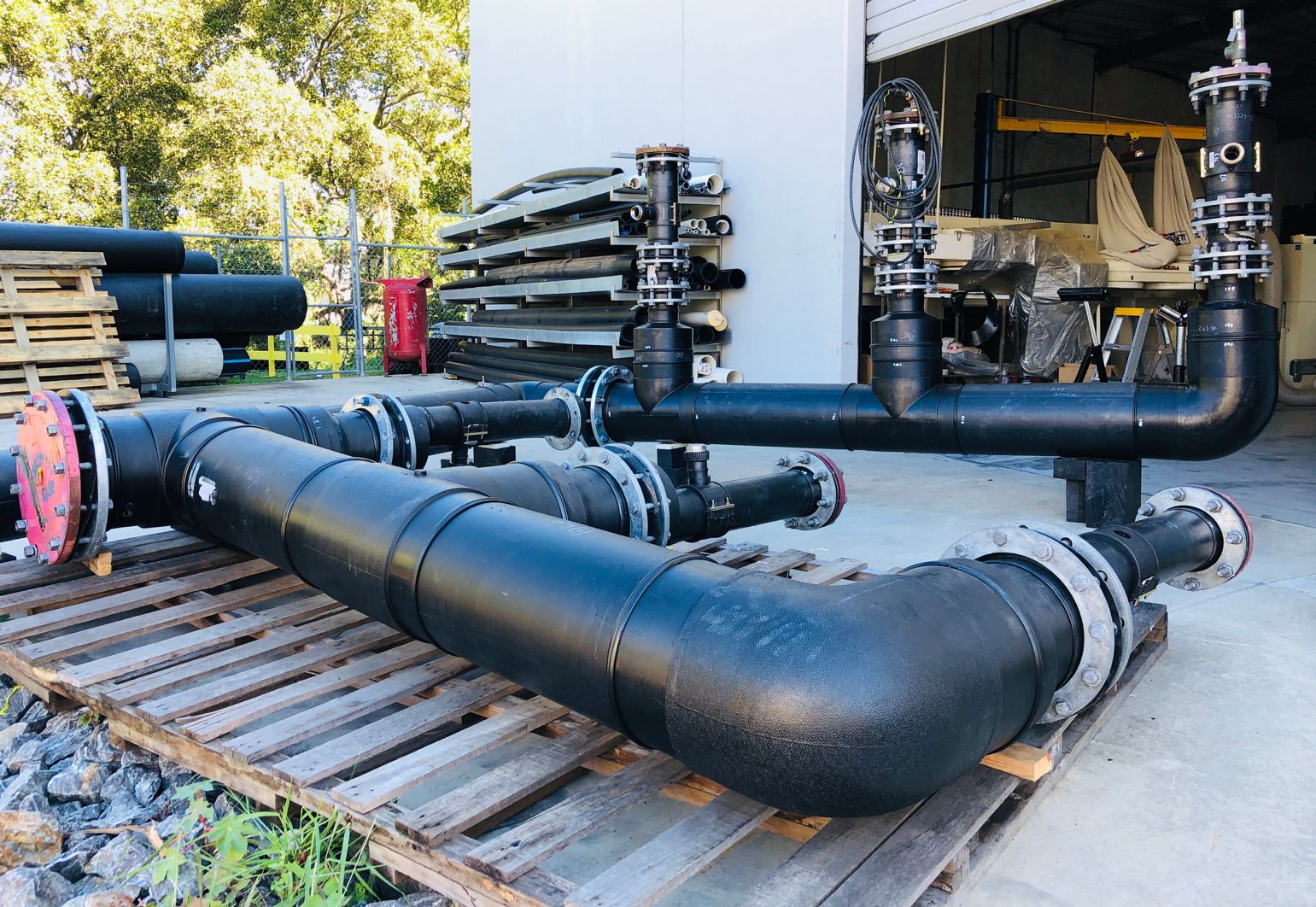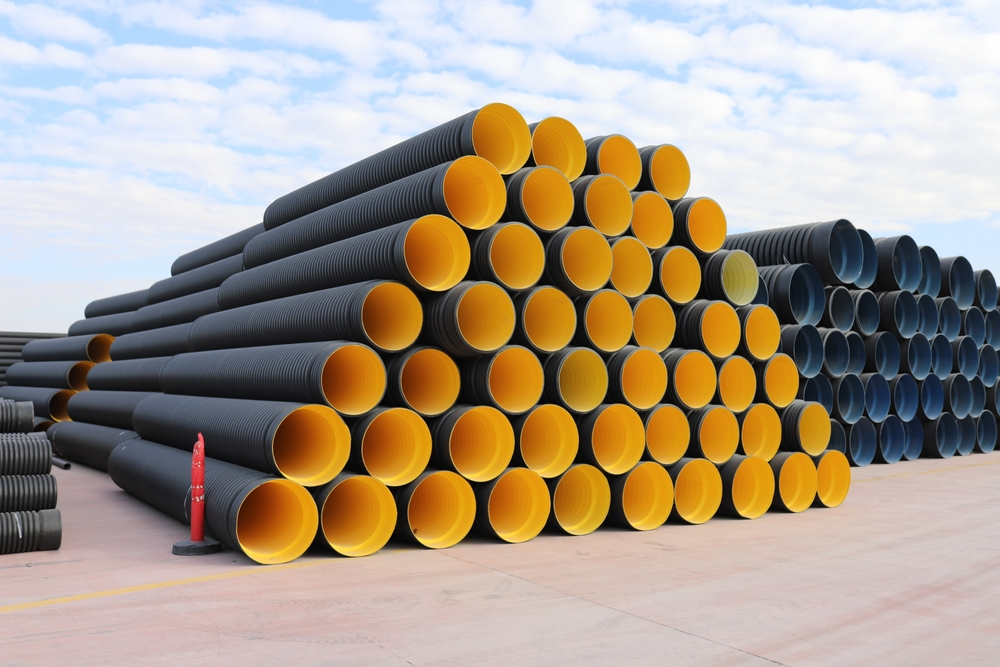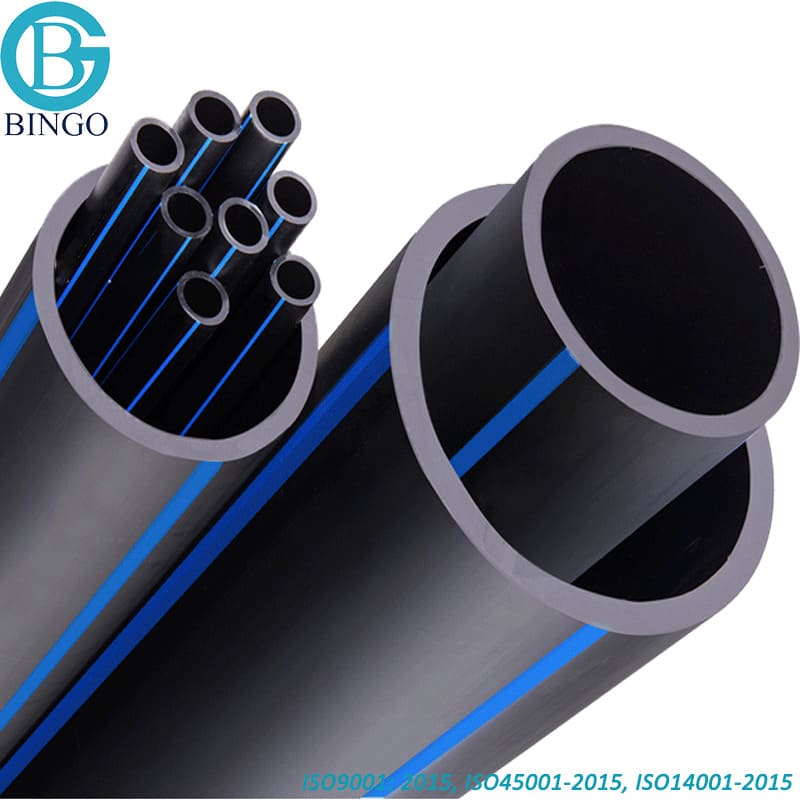Pipeline Manufacturer insights on durability
Checking Out the Leading Pipeline Manufacturers: Quality, Integrity, and Innovation
The pipeline manufacturing industry stands at the intersection of development, high quality, and integrity, driven by leading companies such as Tenaris and Vallourec. These suppliers are not only dedicated to generating high-performance products however are additionally pioneering sustainable techniques that deal with modern-day ecological worries (Pipeline Manufacturer). As we take a look at the standards that define quality in pipeline options, it becomes apparent that the landscape is quickly advancing. What particular advancements are arising, and just how are these developments forming the future of pipeline infrastructure? The responses might redefine industry standards in means that are not yet completely comprehended
Leading Manufacturers Review
In the domain name of pipeline manufacturing, a number of essential gamers emerge as leaders, each contributing considerably to the sector's landscape. Business such as Tenaris, Vallourec, and JFE Steel have actually developed themselves as frontrunners by regularly providing high-grade items that satisfy strict sector criteria. Tenaris, renowned for its cutting-edge remedies, specializes in seamless and bonded pipelines, providing mostly to the oil and gas market. Vallourec, a French international, concentrates on the manufacturing of costs tubular options, stressing sustainability and progressed innovation in its manufacturing processes.
JFE Steel, a significant Japanese manufacturer, is recognized for its considerable variety of steel pipes, particularly those utilized in power and framework projects. Their dedication to study and advancement has enabled them to create high-performance products that endure harsh ecological conditions. Additionally, firms like U.S. Steel and National Oilwell Varco have actually broadened their market visibility by diversifying their item offerings and enhancing functional effectiveness.
These leading suppliers not just control the market yet likewise drive innovation within the industry, establishing benchmarks for high quality and reliability that gamers desire achieve. Their payments are crucial for fulfilling the enhancing demand for effective and sturdy pipeline remedies worldwide.
Standards for Quality Evaluation
Quality analysis in pipeline manufacturing hinges on 2 crucial criteria: material longevity standards and producing procedure effectiveness. Making certain that materials meet extensive longevity criteria is essential for the durability and dependability of pipes. In addition, optimizing the manufacturing procedure can improve efficiency while keeping excellent quality, ultimately impacting overall performance and safety.
Material Longevity Specifications
Guaranteeing the longevity and integrity of pipeline materials is vital for preserving infrastructure stability and functional efficiency. Product toughness criteria play an important duty in evaluating the top quality of pipes, determining the performance and lifespan of the products made use of in construction. Manufacturers have to stick to a variety of rigorous criteria, including those set by organizations such as ASTM International and the American Petroleum Institute (API)
These standards evaluate different variables, consisting of rust resistance, tensile stamina, and tiredness efficiency. Pipelines made use of in destructive atmospheres require products that can stand up to chemical deterioration, while those subjected to high-pressure conditions should exhibit exceptional tensile toughness.
Furthermore, factors such as temperature level changes and ecological conditions should be considered, as these can significantly influence product behavior with time. Manufacturers often utilize advanced testing methods, consisting of accelerated aging tests, to replicate lasting wear and warranty that products exceed or satisfy sector criteria.
Manufacturing Process Performance
Manufacturers' capacity to enhance manufacturing procedure efficiency is important for generating top notch pipelines that satisfy rigorous industry requirements. Efficiency in manufacturing directly affects cost monitoring, production timelines, and overall item integrity. To achieve this, leading pipeline makers implement sophisticated strategies such as lean manufacturing, automation, and real-time data analytics.
Lean manufacturing concepts are crucial in decreasing waste and taking full advantage of source use. By improving processes and removing redundancies, makers can improve productivity while making sure constant top quality. Automation modern technologies, consisting of robotics and computer numerical control (CNC) devices, play an essential duty in boosting accuracy and lowering human error, thereby elevating the reliability of the end product.
In addition, the usage of real-time information analytics enables makers to check manufacturing procedures continuously, allowing them to determine bottlenecks and make prompt adjustments. This proactive technique not only enhances effectiveness yet also sustains high quality guarantee protocols by making certain conformity with regulatory standards.
Integrity in Pipeline Solutions
Integrity in pipeline solutions is critical, as it directly impacts the safety and security and performance of fluid transport systems. Secret elements consist of the resilience of products made use of, adherence to strenuous testing and accreditation standards, and the consolidation of ingenious material solutions that improve efficiency. Recognizing these aspects is essential for producers intending to deliver dependable pipeline facilities.
Importance of Longevity
Accomplishing resilience in pipeline solutions is crucial, as it straight impacts the long-term efficiency and security of infrastructure. Long lasting pipelines are important for decreasing maintenance prices and decreasing the chance of disastrous failures. This reliability is especially important in markets such as oil and gas, water supply, and wastewater administration, where the effects of pipeline failure can be serious, both financially and ecologically.
The materials and producing procedures employed by pipeline makers play a significant function in determining the resilience of the end product. Utilizing top notch basic materials, progressed innovations, and ingenious style principles guarantees that pipes can endure different stress factors, including stress fluctuations, temperature level variants, and harsh environments.
The longevity of pipes is closely connected to their capacity to withstand exterior factors such as soil activity, seismic activity, and chemical direct exposures. Reliable rust protection techniques, such as finishes and cathodic defense, additionally improve the long life of pipes, securing them against degeneration gradually.
Investing in long lasting pipeline remedies inevitably equates to enhanced operational efficiency, reduced downtime, and improved security, affirming the crucial significance of resilience in contemporary pipeline manufacturing.
Examining and Accreditation Specifications
In the domain name of pipeline options, strenuous screening and accreditation criteria are important to ensure the integrity and safety and security of infrastructure. These standards act as criteria for evaluating the performance and longevity of pipeline materials and systems, verifying they fulfill particular regulative and market demands.
Testing processes generally encompass numerous approaches, including stress testing, hydrostatic evaluations, and non-destructive testing techniques. These analyses are vital for recognizing prospective weak points or issues in the products before they are deployed in real-world applications. In addition, accreditation by identified organizations guarantees that producers follow developed standards, which promotes trust among stakeholders, consisting of specialists, end-users, and engineers.
Many top pipeline producers participate in constant surveillance and improvement of their testing procedures to adjust to advancing market criteria and technological developments. Compliance with requirements such as ASTM, ASME, and ISO not just boosts product dependability however additionally decreases the threat of environmental occurrences related to pipeline failures.
Innovative Material Solutions
The development of innovative product solutions has transformed the landscape of pipeline manufacturing, enhancing both efficiency and longevity. Advanced products such as high-density polyethylene (HDPE), cross-linked polyethylene (PEX), and composite materials have become game-changers, using superior resistance to deterioration, temperature variations, and stress variations. These materials not just expand the life-span of pipes but also reduce upkeep prices, making certain reliable long-term efficiency.
Moreover, suppliers are increasingly adopting clever materials that integrate sensors for real-time monitoring. This technology enables proactive maintenance, considerably improving integrity by finding leakages or structural weak points prior to they rise right into important failures. The combination of nanotechnology has additionally caused the development of coatings that boost the resilience of pipes against abrasion and chemical direct exposure.
Sustainability is one more key emphasis, with suppliers checking out bio-based composites and recyclable products that minimize ecological impact. As regulative criteria continue to advance, the emphasis on cutting-edge material options comes to be paramount in conference rigid safety and environmental needs. Ultimately, these improvements not just enhance the dependability of pipeline systems however additionally add to the total performance and sustainability of energy transportation frameworks.
Developments in Pipeline Innovation
Developments in pipeline technology are changing the industry by boosting effectiveness, safety and security, and ecological sustainability. Recent improvements focus on wise pipeline systems that make use of sensors and IoT technology to check problems in actual time, enabling proactive maintenance and minimizing the threat of failings. These systems can discover leakages, stress adjustments, and various other abnormalities, enabling fast feedback and minimizing environmental impact.
Additionally, the development of sophisticated products, such as corrosion-resistant and composite alloys, considerably extends the lifespan and reliability of pipes. HDPE Pipe Supplier (HDPE Pipe Supplies Midland TX). These materials lower upkeep costs and enhance performance in harsh settings, making them ideal for water, oil, and gas transportation
Moreover, automation and robotics are playing a crucial function in pipeline construction and inspection. Drones and robot tools assist in surveys and analyses of hard-to-reach areas, ensuring thorough examinations without jeopardizing safety.
In addition, cutting-edge layouts, such as modular pipeline systems, enable greater adaptability in setup and modification, accommodating the dynamic demands of the power industry. With each other, these technical improvements not just enhance functional efficiency however likewise contribute to a more sustainable and durable pipeline infrastructure, leading the way for a greener future.
Study of Success
Across different sectors, successful implementations of sophisticated pipeline modern technologies demonstrate considerable enhancements in functional efficiency and security. One remarkable case is the implementation of clever pipeline monitoring systems in the oil and gas market, where real-time information analytics have lowered leak discovery times by over 50%. This not only minimizes environmental threats however likewise boosts the total integrity of pipeline facilities.

In addition, a major manufacturer applied robot examination modern technologies in its pipeline upkeep operations, resulting in a 40% renovation in examination effectiveness. This strategy has structured upkeep routines and considerably reduced downtime.
These instance research studies highlight how leading pipeline manufacturers are leveraging cutting-edge modern technologies to promote reliability and functional excellence, inevitably setting brand-new requirements for the industry. As these successes proceed to unfold, they lead the way for additional innovations in pipeline manufacturing and administration.

Ecological Sustainability Practices
Regularly, pipeline makers are focusing on ecological sustainability techniques to alleviate their eco-friendly impact and enhance the long life of their items. This commitment is reflected in numerous initiatives intended at reducing waste, saving power, and utilizing sustainable materials throughout the manufacturing procedure.

Many suppliers are embracing sophisticated modern technologies that lessen emissions and energy usage. The assimilation of automated systems and energy-efficient equipment helps improve manufacturing while reducing dependence on fossil fuels. Additionally, companies are increasingly turning to environment-friendly products, such as recycled steels and bioplastics, which not just lower the ecological effect but additionally promote a circular economic situation.
Additionally, pipeline suppliers are implementing strenuous lifecycle evaluations to evaluate the ecological effects of their products from creation to disposal. This approach allows them to recognize chances for renovation and foster accountable sourcing and waste management techniques.
Partnership with environmental organizations further improves these efforts, as suppliers look for to straighten their operations with worldwide sustainability goals. Eventually, these environmental sustainability methods not only add to a much healthier world but likewise setting suppliers as liable leaders in the market, attracting ecologically conscious stakeholders and customers alike.
Future Patterns in Pipeline Manufacturing
As the demand for much more reliable and lasting infrastructure expands, pipeline manufacturing is poised for considerable improvements that will certainly improve the market. Secret fads prepared for in the coming years include the combination of advanced products, such as composite and corrosion-resistant alloys, which boost toughness while decreasing ecological influence. Manufacturers are also expected to embrace ingenious production techniques, like additive manufacturing and automation, to streamline processes, decrease waste, and lower expenses.
In addition, the increase of smart pipeline modern technologies, integrating sensors and IoT devices, will allow real-time surveillance and anticipating maintenance, thus enhancing safety and operational effectiveness. This electronic improvement will certainly not just enhance resource administration yet also assist in compliance with strict ecological laws.
Sustainability will certainly continue to be a central focus, driving makers to purchase green techniques, including energy-efficient manufacturing approaches and reusing efforts. As the worldwide emphasis on climate change increases, pipeline suppliers will require to adjust by developing solutions that satisfy both economic and environmental demands.
Regularly Asked Questions

What Industries Primarily Utilize Pipeline Products From These Manufacturers?
Pipeline items are largely utilized in markets such as oil and water, gas and wastewater monitoring, chemical mining, building, and processing. These sectors rely upon reliable, sturdy, and risk-free transportation of materials and fluids.
How Do Manufacturers Make Sure Compliance With International Pipeline Specifications?
Manufacturers assure conformity with international pipeline criteria by implementing extensive quality assurance processes, conducting normal assessments, sticking to well established regulatory structures, and purchasing staff member training to promote awareness and understanding of safety and security and top quality requirements.
What Is the Average Life-span of Pipelines From Leading Manufacturers?
The typical lifespan of pipelines from leading makers usually varies from 30 to 100 years, depending upon material, find this environmental problems, and maintenance practices. American Plastics LLC HDPE Pipeline Manufacturer. Regular evaluations and adherence to sector requirements substantially influence longevity and performance
Are There Certifications Particular to Pipeline Production Quality?
Yes, various certifications exist for pipeline manufacturing top quality, including ISO 9001 for top quality administration systems and API requirements specific to pipelines. These qualifications guarantee adherence to rigorous security, efficiency, and environmental criteria within the sector.
How Do Manufacturers Handle Pipeline Upkeep and Repairs?
Manufacturers generally execute a proactive upkeep strategy that includes normal examinations, checking systems for early discovery of issues, and an organized repair work protocol. This strategy warranties pipeline honesty, decreases downtime, and enhances overall functional performance.
Quality evaluation in pipeline manufacturing pivots on 2 essential criteria: product sturdiness requirements and producing process efficiency - Pipeline Manufacturer. Product longevity standards play a vital role in evaluating the top quality of pipelines, determining the performance and life-span of the products made use of in building. The materials and producing processes used by pipeline producers play a considerable role in identifying the durability of the last product. The typical life expectancy of pipelines from leading suppliers commonly ranges from 30 to 100 years, depending on material, ecological conditions, and upkeep methods. Yes, various qualifications exist for pipeline making top quality, including ISO 9001 for quality monitoring systems and API requirements certain to pipelines